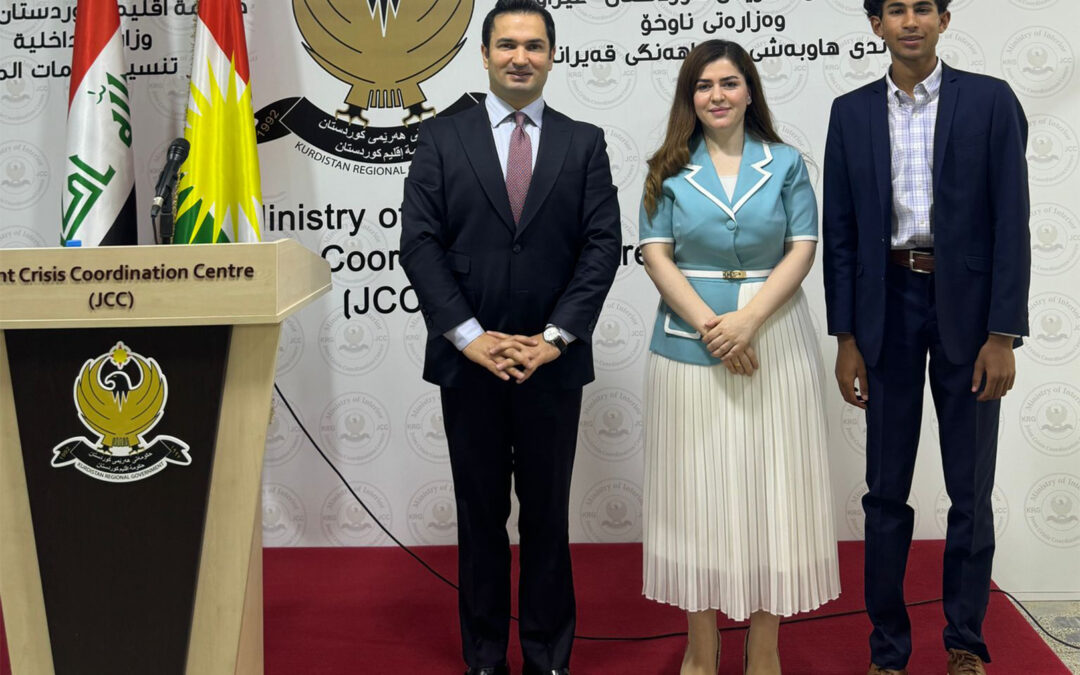Part 3 – Understanding the Economic, Political, and Social Factors Changing Kurdistan
During our recent visit to the Kurdistan Region of Iraq (KRI), we engaged in a series of impactful meetings and events that highlighted both the region’s resilience and its ongoing challenges. At the KRG Department of Foreign Affairs, officials emphasized the immense pressure Kurdistan faces in hosting nearly 2 million refugees within a total population of just 5 million over the last decade, though many of these refugees have been aided in returning home last year. While there has been a decrease in the number of individuals living in refugee camps—from 1.7 million five years ago to less than 1 million today—the burden remains heavy. Much of this strain stems from a limited budget allocated by the country, which restricts the Kurdistan Regional Government (KRG)’s capacity to respond to both humanitarian and development needs. Despite these challenges, KRG leaders voiced hope in the region’s untapped agricultural sector, which they see as ripe for foreign investment beyond the traditional focus on oil. The Kurdistan Chronicle magazine is a good source of information on these areas of growth and they recently highlighted an article on agriculture entitled “Advancing Agriculture, Supporting Women.”
At the Ministry of Interior and the Joint Crisis Coordination Center (JCC), we learned more about the structural mechanisms in place to support internally displaced persons (IDPs) and refugees. With 70% of displaced individuals living outside of camps, KRG officials reiterated their commitment to not closing down camps until returnees can do so with safety and dignity. Although the Iraqi government offered compensation to war-displaced citizens, the $3,000 per family was seen as inadequate by many. Nonetheless, the KRG has made strides in international coordination—especially with UN agencies—and in raising awareness around illegal migration, legal pathways for youth employment abroad, and citizen protection.
One of the most emotional moments of the visit came during the 10-year anniversary of the Yezidi Genocide. The event was powerfully moving, drawing international representatives, including from the Canadian embassy, and offering a platform for legal and humanitarian voices seeking justice for the Yezidi people. Panelists spoke about the importance of accountability, historical recognition, and long-term support for survivors. The event was professionally organized and featured live translation, allowing for broader engagement with global attendees.
We also had the chance to visit the Edwina American Academy, which is playing a key role in supporting both adult learners and orphaned children through its NextGen initiative, in partnership with the Barzani Charity Foundation. With a strong focus on secondary skills and vocational training, the academy is also pioneering cross-cultural dialogue, including an upcoming podcast that will bring together Kurdish youth and peers from the U.S. and Europe. This innovative approach reflects a new chapter of connection, empowerment, and shared storytelling across borders.
Meeting with people across government, humanitarian organizations, cultural institutions, and grassroots initiatives in Erbil offered a deeper understanding of the region’s complex history and its hopes for the future. These conversations underscored how essential it is to engage directly with those shaping policy, supporting displaced communities, and preserving cultural identity. Developing Diplomacy hopes to build bridges through diplomacy and dialogue. We believe there is a real opportunity to raise global awareness and drive meaningful support—especially for refugee children who deserve safety, education, and a chance to thrive. The path forward lies in connection, cooperation, and commitment.

